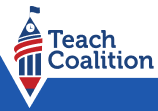
NYC Councilman Mark Treyger (NYC.gov)
By Josh Berkman
Director of Communications, Teach Coalition
Before the pandemic began its terrifying assault on the worldwide population, roughly 30 percent of Jewish American households were living on less than $50,000 in total annual income, according to the Pew Family Foundation. And between 16 and 20 percent were surviving on less than $30,000. Unemployment is now skyrocketing to never-before seen levels and there are even more Jews in need.
For this reason, Teach Coalition has been fighting across the U.S. for equitable distribution of government relief resources, such as kosher meals for children and adults. The roll-out of New York City’s kosher “grab and go” meal program represents a signature victory. Teach NYS (Teach Coalition’s New York-based team) – along with UJA Federation of New York and The Jewish Education Project – began advocating for kosher and halal meals in March, once the Department began distributing free non-kosher meals.
Several members of City Council took up the fight in City Hall. Councilman Mark Treyger chairs the Council’s education committee. He has been a strong voice on numerous fronts for equitable distribution of city resources. We had the opportunity to ask him a few questions:
Why is it important for kosher and halal meals to be provided as options?
All children need access to food, including religiously observant children. Since the onset of the COVID-19 crisis here in New York City, tens of thousands have become unemployed. Additionally, schools and senior centers are closed, leaving millions without their usual source of meals. It has also become more difficult to secure food from local grocery stores and bodegas. Several weeks ago, the Mayor instituted “grab and go” meal pick-up sites for all, including students, families, and adults. However, New Yorkers who observe kosher and halal dietary restrictions were unable to receive free meals from the “grab and go” program. This is unacceptable. Every student must have access to a meal regardless or their cultural or religious affiliations.
What kind of challenges are there in getting the DoE to include nonpublic schools their emergency allocations?
COVID-19 doesn’t care what kind of school students attend, and neither should our government’s response. During this pandemic, I have been asking the DOE to offer kosher and halal meal options to ensure that all of our city’s children have access to food while schools are closed. There has been a slow response to address food insecurity citywide, but with the partnership of Teach NYS, the DOE has finally agreed and will provide kosher and halal meal options at “grab and go” sites for all New Yorkers to receive three meals a day. I’ll continue to fight to ensure that all kids have the meals they need to grow and thrive during this time of uncertainty.
How important is it for community groups to advocate for equitable distribution of resources during a time like this?
Our communities depend and rely on local organizations to help sustain, rebuild and recover during national emergencies, including natural disasters and pandemics. Now more than ever it’s important that our city continue to fund these vital organizations that provide much needed support and resources as we navigate the coronavirus pandemic. I want to thank Teach NYS for their tireless dedication working to ensure that the city provides kosher meals for all students. Their advocacy and work illustrates how necessary and impactful the coalition of community groups and advocates who came out to fight for kosher meals were in getting it across the finish line.
Why is this issue important to you personally?
Hundreds of thousands of New Yorkers keep kosher and halal, and they are being left behind in the most diverse city in the world. The city needs to prioritize food security for all of its residents. As a member of the Council’s budget negotiating team, I know first-hand how this Council has championed strengthening our city’s social safety net. Now, in the worst pandemic in over 100 years, we won’t allow that safety net to collapse and compromise the food security of New Yorkers. I’ll continue to work to ensure no New Yorker goes hungry. No one.

